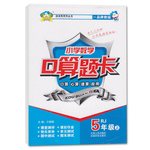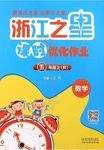
Odland remembers like it was yesterday working in an expensive French restaurant in Denver. The ice cream he was serving fell onto the white dress of a rich and important woman.
Thirty years have passed, but Odiand can' t get the memory out of his mind, nor the woman' a kind reaction (反应). She was shocked, regained calmness and, in a kind voice, told the young Odiand, “It’s OK. It wasn't your fault. " When she left the restaurant, she also left the future Fortune 500 CEO (总裁) with a life lesson: You can tell a lot about a person by the way he or she treats the waiter.
Odiand isn't the only CEO to have made this discovery. Rather, it seems to be one of those few laws of the land that every CEO learns on the way up. It' s hard to get a dozen CEOs to agree about anything, but most agree with the Waiter Rule. They say how others treat the CEO says nothing. But how others treat the waiter is like a window into the soul.
Watch out for anyone who pulls out the power card to say something like, " I could buy this place and fire you," or "I know the owner and I could have you fired. " Those who say such things have shown more about their character (人品) than about their wealth and power.
The CEO who came up with it, or at least first wrote it down, is Raytheon CEO Bill Swanson. He wrote a best-selling book called Swanson’s Unwritten Rules of Management.
"A person who is nice to you but rude to the waiter, or to others, is not a nice person," Swan-son says. " I will never offer a job to the person who is sweet to the boss but turns rude to someone cleaning the tables. "
1. What happened after Odiand dropped the ice cream onto the woman’s dress?
A. He was fired. B. He was blamed.
C. The woman comforted him. D. The woman left the restaurant at once.
2. Odiand learned one of his life lessons from ______.
A. his experience as a waiter B. the advice given by the CEOs
C. an article in Fortune D. an interesting best-selling book
3. According to the text, most CEOs have the same opinion about _______.
A. Fortune 500 companies B. the Management Rules
C. Swanson’s book D. the Waiter Rule
4. From the text we can learn that _______.
A. one should be nicer to important people
B. CEOs often show their power before others
C. one should respect others no matter who they are
D. CEOs often have meals in expensive restaurants
 小学教材全测系列答案
小学教材全测系列答案 小学数学口算题卡脱口而出系列答案
小学数学口算题卡脱口而出系列答案 优秀生应用题卡口算天天练系列答案
优秀生应用题卡口算天天练系列答案 浙江之星课时优化作业系列答案
浙江之星课时优化作业系列答案科目:高中英语 来源: 题型:阅读理解
Odland remembers like it was yesterday working in an expensive French restaurant in Denver. The ice cream he was serving fell onto the white dress of a rich and important woman.
Thirty years have passed, but Odland can’t get the memory out of his mind, nor the woman’s kind reaction (反应) . She was shocked, regained calmness and, in a kind voice, told the young Odland. “It’s OK. It wasn’t your fault.” When she left the restaurant, she also left the future Fortune 500 CEO (总裁) with a life lesson: You can tell a lot about a person by the way he or she treats the waiter.
Odland isn’t the only CEO to have made this discovery. Rather, it seems to be one of those few laws of the land that every CEO learns on the way up. It’s hard to get a dozen CEO’s to agree about anything, but most agree with the Waiter Rule. They say how others treat the CEO says nothing. But how others treat the waiter is like a window into the soul.
Watch out for anyone who pulls out the power card to say something like, “I could but this place and fire you,” or“I know the owner and I could have you fired.” Those who say such things have shown more about their character(人品) than about their wealth and Power.
The CEO who came up with it, or at least first wrote it down, is Raytheon CEO Bill Swanson. He wrote a best-selling book called, Swanson’s Unwritten Rules of Management.
“A person who is nice to you but rude to the waiter, or to others, is not a nice person,” Swanson says. “I will never offer a job to the person who is sweet to the boss but turns rode to someone cleaning the tables.”
49. What happened after Odland dropped the ice cream onto the woman’s dress?
A. He was fired. B. He was blamed.
C. The woman comforted him. D. The woman left the restaurant at once.
50. Odland leaned one of his life lessons from ________.
A. his experience as a waiter. B. the advice given by the CEOs
C. an article in Fortune D. an interesting best-selling book
51. According to the text, most CEOs have the same opinion about __________.
A. Fortune 500 companies B. the Management Rules
C. Swanson’s book D. the Waiter Rule
52. From the text can learn that __________.
A. one should be nicer to important people
B. CEOs often show their power before others
C. one should respect others no matter who they are
D. CEOs often have meals in expensive restaurants
查看答案和解析>>
科目:高中英语 来源:全国通用2010年北大清华冲刺王高考押题卷英语(二) 题型:阅读理解
An allowance is an important tool for teaching kids how to budget, save and make their own decisions. Children remember and learn from mistakes when their own dollars are lost or spent foolishly.
How large an allowance is appropriate? Experts say there is not right amount. Actual amounts differ from region to region, and from family to family.
To set an appropriate allowance for your child, work up a weekly budget. Allow for entertainment expenditures such as movies and snacks. Next, include everyday expenses such as lunch money, bus fare, school supplies. "If you make the child responsible for these ‘ ills’," says Josephine Swanson, a consumer specialist, " he or she will learn to budget for necessary expenditures."
Finally, add some extra money to make saving possible. If you can, keep your child’s allowance in line with that of his friends. A child whose purchasing power falls away below his peers’ can feel left out.
It can be tough, but avoid excusing your children when they make a mistake with their allowance. When Brooke Stephens was ten and growing up in Jacksonville, her mother gave her $5 a week, $1.75 of which was for bus fare and lunch." If you lose your money," Brooke’s mother told her, "you walk home."
One week the girl spent all her allowance in a candy store, then she called home for a ride. " Mom made me walk home," recalls Stephens, now a financial planner in Brooklyn. " At first I was angry. But I finally realized that she was trying to teach me an important lesson. "
Experts advise that an allowance should not be tied directly to a child’s daily chores. Kids should help around the house not because they get paid for it but because they share responsibilities as members of a family. You might, however, pay a child for doing extra jobs at home, which can develop his or her initiative.
63. Which of the following is the possible title of the passage?
A. How to develop a child’s initiative.
B. How to work up an amount of pocket money.
C. How to teach a child to save money.
D. How to teach a child about money.
64. It can be inferred from the passage that if a child is given an allowance, he or she may ________.
A. spend all the money very soon
B. be spoiled and finally ruined
C. feel responsible and careful about money
D. lost the money and can not return home
65. In Paragraph 4, the words “his peers” refer to ________.
A. his parents B. his teachers C. his financial experts D. his friends
66. The author implies in the passage that ________.
A. paying children for their housework is no good
B. a child’s initiative can be developed if he or she is paid for all the housework
C. children may feel lost and lonely if they have no pocket money
D. children may learn to put aside some money if they are given a great amount of pocket money
查看答案和解析>>
科目:高中英语 来源:2012-2013学年四川省南山中学高二下学期期中考试英语试卷(带解析) 题型:阅读理解
An allowance(零花钱) is an important tool for teaching kids how to make plans for the use of money, save and make their own decisions. Children remember and learn from mistakes when their own dollars are lost or spent foolishly.
How large an allowance is suitable? Experts say there is not right amount. Actual amounts differ from region to region, and from family to family.
To set an suitable allowance for your child, work up a weekly plan. Allow for entertainment costs such as movies and snacks. Next, include everyday expenses such as lunch money, bus fare, school supplies. "If you make the child responsible for these bills’," says Josephine Swanson, a consumer specialist, " he or she will learn to plan for necessary costs."
Finally, add some extra money to make saving possible. If you can keep your child’s allowance in line with that of his friends. A child whose buying power falls away below his peers’ can feel left out.
It can be tough, but don’t excuse your children when they make a mistake with their allowance. When Brooke Stephens was ten and growing up in Jacksonville, her mother gave her $5 a week, $1.75 of which was for bus fare and lunch." If you lose your money," Brooke’s mother told her, "you walk home."
One week the girl spent all her allowance in a candy store, then she called home for a ride. " Mom made me walk home," recalls Stephens, now a financial planner in Brooklyn. " At first I was angry. But I finally realized that she was trying to teach me an important lesson. "
Experts advise that an allowance should not be tied directly to a child’s daily housework at home. Kids should help around the house not because they get paid for it but because they share responsibilities as members of a family. You might, however, pay a child for doing extra jobs at home, which can develop his or her early habits.
【小题1】Which of the following is the possible title of the passage?
| A.How to develop a child’s early habits. |
| B.How to work up an amount of pocket money. |
| C.How to teach a child about money. |
| D.How to teach a child to save money. |
| A.spend all the money very soon |
| B.fall into the bad habit of wasting money |
| C.feel responsible and careful about money |
| D.lose the money and can not return home |
| A.his parents | B.his friends |
| C.his financial experts | D.his teachers |
| A.To question the opinion about pocket money. |
| B.To compare Stephens with other financial experts. |
| C.To explain that parents should be strict when children are developing good habits about money. |
| D.To suggest pocket money is useless in developing a child’s sense of responsibility. |
| A.children may feel lonely if they have no pocket money |
| B.a child’s early good habits can be developed if he or she is paid for all the housework |
| C.paying children for their housework is no good |
| D.children may learn to put aside some money if they are given a great amount of pocket money |
查看答案和解析>>
科目:高中英语 来源:2014届四川省高二下学期期中考试英语试卷(解析版) 题型:阅读理解
An allowance(零花钱) is an important tool for teaching kids how to make plans for the use of money, save and make their own decisions. Children remember and learn from mistakes when their own dollars are lost or spent foolishly.
How large an allowance is suitable? Experts say there is not right amount. Actual amounts differ from region to region, and from family to family.
To set an suitable allowance for your child, work up a weekly plan. Allow for entertainment costs such as movies and snacks. Next, include everyday expenses such as lunch money, bus fare, school supplies. "If you make the child responsible for these bills’," says Josephine Swanson, a consumer specialist, " he or she will learn to plan for necessary costs."
Finally, add some extra money to make saving possible. If you can keep your child’s allowance in line with that of his friends. A child whose buying power falls away below his peers’ can feel left out.
It can be tough, but don’t excuse your children when they make a mistake with their allowance. When Brooke Stephens was ten and growing up in Jacksonville, her mother gave her $5 a week, $1.75 of which was for bus fare and lunch." If you lose your money," Brooke’s mother told her, "you walk home."
One week the girl spent all her allowance in a candy store, then she called home for a ride. " Mom made me walk home," recalls Stephens, now a financial planner in Brooklyn. " At first I was angry. But I finally realized that she was trying to teach me an important lesson. "
Experts advise that an allowance should not be tied directly to a child’s daily housework at home. Kids should help around the house not because they get paid for it but because they share responsibilities as members of a family. You might, however, pay a child for doing extra jobs at home, which can develop his or her early habits.
1.Which of the following is the possible title of the passage?
A.How to develop a child’s early habits.
B.How to work up an amount of pocket money.
C.How to teach a child about money.
D.How to teach a child to save money.
2. It can be inferred from the passage that if a child is given an allowance, he or she may ________.
A.spend all the money very soon
B.fall into the bad habit of wasting money
C.feel responsible and careful about money
D.lose the money and can not return home
3. In Paragraph 4, the words “his peers” refer to ________.
A.his parents B.his friends
C.his financial experts D.his teachers
4. Why does the writer mention Brooke Stephens?
A.To question the opinion about pocket money.
B.To compare Stephens with other financial experts.
C.To explain that parents should be strict when children are developing good habits about money.
D.To suggest pocket money is useless in developing a child’s sense of responsibility.
5. The writer implies in the passage that ________.
A.children may feel lonely if they have no pocket money
B.a child’s early good habits can be developed if he or she is paid for all the housework
C.paying children for their housework is no good
D.children may learn to put aside some money if they are given a great amount of pocket money
查看答案和解析>>
科目:高中英语 来源:2007年高考试题(全国卷二)解析版 题型:阅读理解
Odland remembers like it was yesterday working in an expensive French restaurant in Denver.The ice cream he was serving fell onto the white dress of a rich and important woman.
Thirty years have passed,but Odland can’t get the memory out of his mind,nor the woman’s kind reaction(反应).She was shocked,regained calmness and,in a kind voice,told the young Odland.“It’s OK.It wasn’t your fault.”When she left the restaurant,she also left the future Fortune 500 CEO(总裁) with a life lesson:You can tell a lot about a person by the way he or she treats the waiter.
Odland isn’t the only CEO to have made this discovery.Rather,it seems to be one of those few laws of the land that every CEO learns on the way up.It’s hard to get a dozen CEOS to agree about anything,but most agree with the Waiter Rule.They say how others treat the CEO says nothing.But how others treat the waiter is like a window into the soul.
Watch out for anyone who pulls out the power card to say something like,“I could buy this place and fire you.”or “I know the owner and I could have you fired.”Those who say such things have shown more about their character(人品) than about their wealth and power.
The CEO who came up with it,or at least first wrote it down,is Raytheon CEO Bill Swanson.He wrote a best-selling book called Swanson’s Unwritten Rules of Management.
“A person who is nice to you but rude to the waiter,or to others,is not a nice person,”Swanson says.“I will never offer a job to the person who is sweet to the boss but turns rude to someone cleaning the tables.”
1.What happened after Odland dropped the ice cream onto the woman’s dress?
A.He was fired.
B.He was blamed.
C.The woman comforted him.
D.The woman left the restaurant at once.
2.Odland learned one of his life lessons from _______.
A.his experience as a waiter B.the advice given by the CEOs
C.an article in Fortune D.an interesting best-selling book
3.According to the text,most CEOs have the time opinion about _______.
A.Fortune 500 companies B.the Management Rules
C.Swanson’s book D.the Waiter Rule
4.From the text we can learn that _______.
A.one should be nicer to important people
B.CEOs often show their power before others
C.one should respect others no matter who they are
D.CEOs often have meals in expensive restaurants
查看答案和解析>>
湖北省互联网违法和不良信息举报平台 | 网上有害信息举报专区 | 电信诈骗举报专区 | 涉历史虚无主义有害信息举报专区 | 涉企侵权举报专区
违法和不良信息举报电话:027-86699610 举报邮箱:58377363@163.com